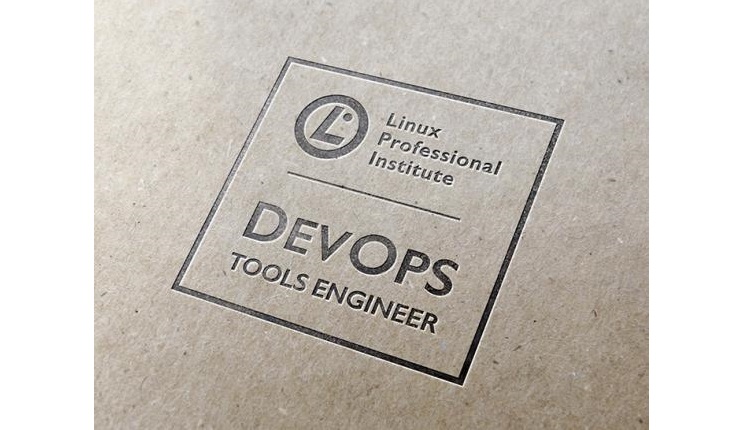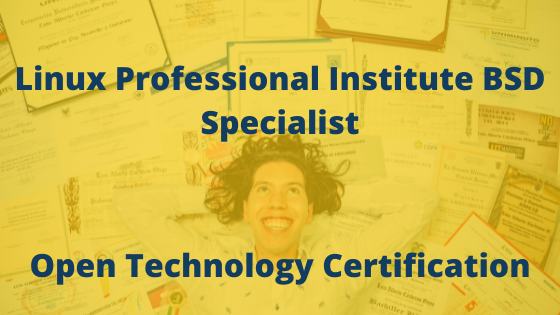Linux Professional Institute (LPI) established its Learning Portal in June 2019 as the repository of all the Learning Materials for LPI’s exams. The project is managed by Dr. Markus Wirtz, LPI’s Learning Materials Manager. The Learning Portal is, since its very beginning, an international endeavor, because learning is easier if you can study in your mother tongue.
This series of interviews is a journey toward knowing better “the People behind the Portal,” the team of authors, editors, and translators that designs, writes, and localizes the lessons and the site itself. By reading this series of interviews, you will know more about the contributors’ work and why working on the Learning Portal is quite cool and nerdy!
In this issue of the series we make the acquaintance of Flávio Schefer. Brazilian, 22 years old, Flávio started his IT career at LPI as a peer reviewer. His interest in Linux was sparked when he became friends with Cesar Brod and the Latin America Team of LPI. Currently, he's employed as a quality assurance (QA) engineer at IBM.
What is your academic and professional background?
I am an International Relations student from Brazil, currently working as an Automation QA engineer at IBM.
When and how did you decide to use your skills to develop learning materials for Linux Professional Institute?
I first joined LPI as a volunteer translating learning materials, because I have been studying English since I was 14 years old. That happened on September last year, and I joined the project because after I had done that livestream with Cesar Brod (Community Engagement Director - Spanish and Portuguese Regions) and Jon “maddog” Hall (Board chairman) I just fell in love with the FLOSS world and decided I needed to be a part of it.
What is your contribution, so far, to the Learning Portal, and what’s next for you in this project?
As for today (February 4, 2021), I reviewed the Portuguese translations of LPIC-101 materials that are now released free for everyone at learning.lpi.org. About what I will be doing, I do not know. But I’d love to help with materials for the LPIC-2 exam, which I am studying for, and many other new projects LPI is preparing for this year.
As a certified professional and a developer of learning materials, you are familiar with both sides of the coin. What advice, therefore, would you give to people studying for their LPI Exams?
I’d say: “Study. Use the free materials we write and translate for you. If you need classes, there are many good ones online. Do exam simulations, they are really important (Our learning materials tend to include exercises and questions at the end of a lesson), but above all else, practice. Run Linux at a Virtual Machine, if you do not like ng it permanently on your own hardware, and test the commands on your side too. Read the actual configuration files. Study, practice, and you will pass with ease.” :)
What advice would you offer to teachers and, in a broader sense, to others involved both in the use and production of Linux and Open Source learning material?
I am not as close of being capable to answer such a question as I am for learning the systems. :-P But I would ask teachers to keep their materials as simple as possible. Many people, especially those my age, are scared of Linux because they think it’s just a black screen. Make people see how fun to learn and useful Linux is, and make them fall in love with it too.
The LPI Learning Portal is a community too. What is your experience with this community so far? What tools and features do you use in the process? What can you tell us about workflow? And what “opensourceness” can you recognize in a project that is about education?
To be honest, I never had much contact with other translators, so I cannot say anything about it. But Dr. Wirtz (the leader of the Learning Materials team) is always very, very helpful and adapts the workflow to our knowledge and availability. So, even if you know very little, or even nothing at all, about Linux, you can help us. I am sure there will be a chore that will fit you perfectly. As for the last part of your question, I believe that the main aspect of open source can help education is by letting people learn on the job, no matter on what level they are, and letting everyone that uses the material, software, or whatever make it even better and fix problems. Quoting Eric Raymond “Given enough eyeballs, all bugs are shallow.''
Localizing IT Training content: hurdles and solutions
What specific hurdles do you have to deal with while translating the Learning Materials into your mother tongue? What are the possible “lost in translation” issues?
We know technology has a very specific vocabulary, which is very hard to adapt into any language other than English. Besides, we have to write material that anyone can use, no matter the knowledge they already have. So sometimes a sentence may be a little “hard to read” if the topic is too complicated. We do our best to make our materials as simple and available as possible, but it is no easy task. Sometimes I may come up with a bad adaptation, so please forgive the mistakes :-P
What is the story of FOSS and Linux in your country, from your point of view?
I know that it’s quite an old story. For some time, the government even had a preference for using FLOSS, which Cesar Brod was a big part of. We have many big initiatives like the C3SL (official distribution repositories mirrors at a federal university) and the GNUTeca (a library management software). Brazil has always been a fertile place for the FLOSS culture, and there are many conventions and events on the topic as well. But I have not kept up with any new projects, unfortunately.
How do you see the impact of your work with the LPILP Team, and the development of projects such as the Learning Portal, in your country in a few years?
I believe that our work as volunteers can bring many people to get to know the Linux world. And I even got to know a few people that got certified through our materials and reached me on social media to ask how they could join LPI’s team. So I truly see our work making a very big difference and bringing fresh blood to the community. Besides, our materials, as they are free, can be used as a basis for people who want to teach Linux to impoverished people, for example, doing social work on the go as well. Quite nice, don’t you think?
Read More: The People Behind the Learning Portal: Luciano Siqueira
Source: lpi.org















